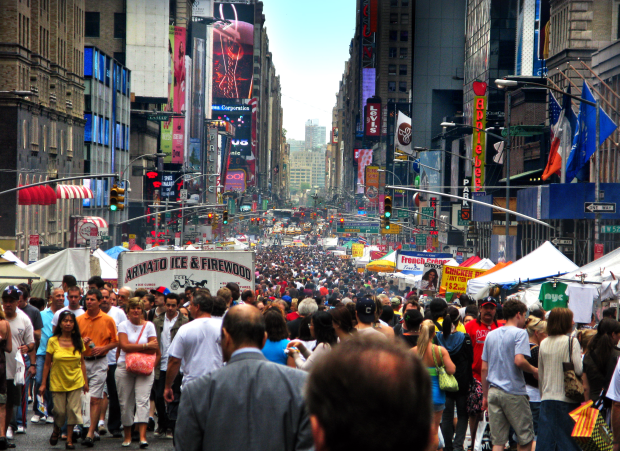


This Crisis Is Different
The observation that recoveries following a financial crisis are different suggests that standard macroeconomic policies might not work as one would usually expect… On balance, it thus seems that this time – or, rather, this post-crisis environment – really is different, and that macroeconomic policies have done little to improve matters…” — Daniel Gros, Director of Center for European Policy Studies, in the Project Syndicate article, “This Recovery Is Different.” Today’s Crisis Renders Political Leaders & Financial Experts Helpless Indeed political leaders, financial and economical experts seem desperately helpless in the face of the deepening crisis all over the world. In Europe, for example, they switch from austerity to stimulus, and then back and forth. In the US, there is sharp debate about more market freedom or more State control, interest rates are lowered to even minus levels like in Denmark, but overall nothing seems to work. All the debate and analysis is touching only the surface, the symptoms. It does not extend deeper trying to identify the core problem. How Is It Possible That The Methods & Tools That Drove Progress Until Today Turn Out To Be Useless, Moreover Harmful? Every day, the news increasingly exemplifies how the globally interconnected economy affects every country in the world, but when it comes to implementing solutions to global problems, no leaders or experts know how to do it. A global, integral system means that all the elements are tightly intermingled with each other. When one part of the network moves, the whole network moves with it. All the elements are fully interdependent. Today’s globally interdependent conditions are still being approached by...
3 Ways To Develop Mutual Responsibility
When it comes to the implementation of a new idea, whether it is in science, economics, culture, etc.—every idea, if it is new, has an uphill battle to undertake. When Galileo proposed that the earth revolved around the sun, and not the other way around, it was the beginning of that idea’s long trek up the hill of what had previously been thought. It was a similar trek walked by the idea of natural selection proposed by Darwin, or by Edison numerous times, or by hip hop to become accepted as a respectable form of music. And so it is now with the idea of mutual responsibility. Just as the earth revolving around the sun suffered through past arguments to the contrary, mutual responsibility does likewise. It has been said to be some sort of form of communism or socialism, a utopian idea, etc. But every new idea undergoes this sort of critique before it, if it has merit, is eventually accepted. Does Mutual Responsibility Have Merit As An Idea? When thinking of the idea of mutual responsibility, where instead of a person valuing individual ideals, or loose collective ideals for the sake of receiving one’s needs and not suffering harm from the rest of society; its value in an increasingly interconnected and interdependent world should be becoming apparent. Because if it can be shown that society, global society, is suffering as a result of interdependence not being valued, and that this then leads to the development of crises on all levels (economic, interpersonal relations, communities, states, nations, international relations), then what idea other than mutual responsibility—where people agree...
Downward Spiral In An Interdependent World
The Slowing Down Of The Chinese Economy Continues A recent article in the Financial Times, “Downturn in China spreads to key sectors,” outlines how the slowdown in China spreads into the key sectors of economy previously thought to be solid. …China’s downturn is spreading to the sectors and companies that were expected to withstand the slowdown and drive growth in the region. Financial Times analysis shows that a third of publicly listed Chinese companies suffered cash outflows in the quarter to the end of June as the combined effect of the slowdown in exports, a build-up in stocks and tightening local government finances begins to bite. Cash balances at a tenth of 1,700 companies analysed by the FT using data from S&P Capital IQ have turned negative in the past two quarters. For a further 6 per cent of companies that normally report an outflow, the outflows were worse than last year. The results highlight that even the companies that are expected to help rebalance China away from an investment-driven economy – such as consumer and retail businesses, healthcare, pharmaceuticals and electronics companies – are being affected by the slowdown, along with construction, real estate, industrial machinery and chemicals…” The Chinese Downturn Is Part Of The Global Process Due To The Interdependent, Integral System For a long time many observers, and also leaders of the global economy, financial institutions and politicians look at China as a potential savior of the global economy with its unstoppable growth. But this belief did not take into calculation the interdependent state nations evolved into in today’s human network. Individuals and nations alike are tied together into...
